patent troll
description: business that cashes in on inventions of others by buying up patents before expiration date
54 results
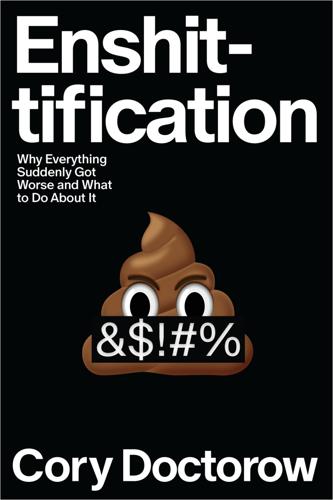
Enshittification: Why Everything Suddenly Got Worse and What to Do About It
by
Cory Doctorow
Published 6 Oct 2025
When the AI bubble pops, there’s gonna be some great deals on fancy office chairs, espresso machines, and foosball tables. It used to be that a failed company’s junk patents would end up forgotten, along with its server logs, web designs, and custom T-shirts. But early this century, a new kind of predator emerged: the patent troll. Patent trolls buy up junk patents—some even have “R&D labs” where they manufacture their own—and then use them to extract huge amounts of money from productive businesses. Patent trolls have no products. In fact, the polite name for them is non-practicing entities (NPEs). The only thing they manufacture is litigation threats. They use low-level, barely trained staff to seek out companies whose activities intersect in some way with the patents they’ve acquired.
…
Before the EFF got to it, the patent was voided in a lawsuit brought by some of the biggest cable and satellite companies in the United States, and Acacia had to find another racket. But that was then. Today, patent trolls often emerge victorious from the courtroom, sometimes winning hundreds of millions of dollars from companies like Apple and Samsung. That’s thanks to the Eastern District of Texas, whose courts are notoriously sympathetic to patent trolls. This has given rise to a regional patent troll industry, so that dusty office buildings in small towns like Marshall, Texas, are the nominal headquarters to hundreds of companies whose presence in the city gives them the right to sue tech companies in the Eastern District.
…
The Eastern District of Texas is a “made town”—the old-timey con-artist term for a city where the local law is on the side of the swindlers and not the marks. It’s home turf for patent trolls, who produce nothing but own the right to sue for rents. If G+ Communications, maker of nothing, takes $142 million out of Samsung as punishment for its making something, rents have triumphed over profits. Varoufakis’s message is that we are in an age where profits exist at the sufferance of rents, where conflicts between rents and profits are almost certain to settle in rents’ favor. He’s got a point. Patent trolls, after all, aren’t the only form of IP troll. (Recall my definition of IP law: any law or regulation that allows a company to reach beyond its own walls and exert control over its competitors, critics, and customers.)
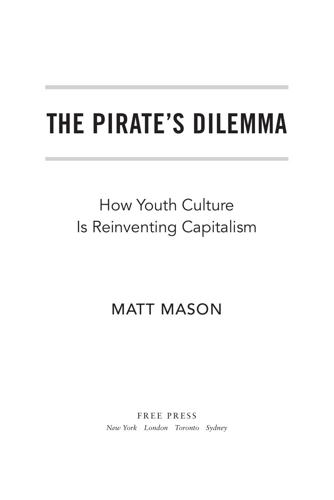
The Pirate's Dilemma: How Youth Culture Is Reinventing Capitalism
by
Matt Mason
But for some, frivolous lawsuits are the entire business plan. These companies sometimes get called patent trolls: they don't invent or make anything themselves, they just buy patents that already exist—or register patents for good ideas already in the public domain. They then track down businesses and individuals already using those ideas, and extort money from them either by suing or threatening to sue. These companies create no value for society at all. The only purpose they serve is to make money by suing other people who are. Forgent Networks was a company accused by critics of patent trolling when they purchased a patent to JPEG digital image compression in 1997, a widely used technology that had been freely available since 1987.
…
The company abandoned all claims on the patent and walked away, keeping the $90 million it had made licensing the rights to JPEGs to thirty companies. The negative effect this is having has not gone unnoticed, and laws are being proposed in the United States and many other countries that will make patent trolling of this kind much more difficult in the future. But patent trolls aren't just going after private businesses; they also have their sites set on our most priceless assets. Our attitude to piracy is important, because what is happening to our freedoms in the world is a troubling sign of things to come elsewhere. There is a race on to patent and control the building blocks of life itself.
…
As music historian Clinton Heylin suggests in Bootleg: The Secret History of the Other Recording Industry, “It could be argued that the influence and impact of the original punk bands lingered on only because their music was bootlegged.” Punk changed the world, but none of it would have been possible without a little help from another dedicated group of innovators: pirates. CHAPTER 2 The Tao of Pirates: Sea Forts, Patent Trolls, and Why We Need Piracy The Principality of Sealand © Bobleroi.co.uk Drift a few miles east from Harwich, a town on the southeastern coast of England, into the murky salt waters of the English Channel, and you'll see two hulking concrete towers jutting out of the briny deep. At the base of these columns, the wreckage of a sunken ship languishes on the seabed like some drowning Atlas supporting their weight.
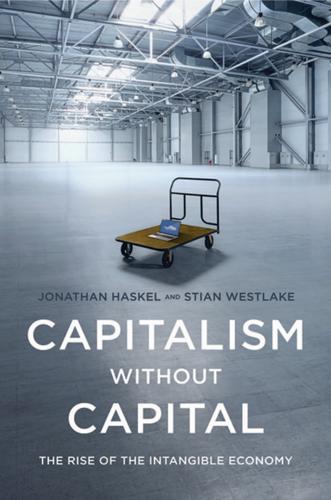
Capitalism Without Capital: The Rise of the Intangible Economy
by
Jonathan Haskel
and
Stian Westlake
Published 7 Nov 2017
James Watt and the Wright brothers riled their contemporaries with their willingness to enforce patents to stop other people’s research on steam and flight, respectively. Patent trolling can be thought of as a pure-play form of this strategy. The patent troll buys up patents, often from defunct companies, and goes around seeking to enforce legal rights against anyone who might otherwise benefit from the spillovers of the original investment. There are good reasons to deplore patent trolling—but it is a pretty straightforward consequence of the spillover characteristic of intangible assets. If the law isn’t strong enough, companies can lobby to have it changed.
…
This fusion of creative and commercial intangible property is what we have to thank for the media franchises of today, from Star Wars lunchboxes to Princess Elsa costumes. And, of course, today issues of intangible property continue to be contested. Global trade negotiations founder on disputes between the United States and China over piracy and fair use. Patent trolls pursue their controversial calling in the courts of the Eastern District of Texas or of Moscow. Controversies arise when companies try to push the limits of the intellectual property rights in new ways, such as when, in 2015, tractor maker John Deere argued that, under the US Digital Millennium Copyright Act, customers who had bought its tractors did not have the right to repair them themselves.
…
Copyright lawyers sometimes talk about the Mickey Mouse Curve—the steadily increasing length of copyright in US law that grows just fast enough to stop Disney’s iconic mouse from entering the public domain. When Disney first created Mickey, his copyright was due to expire in 1984. Extensions in 1976 and 1998 mean that this won’t happen until 2023. And who knows what new laws might be made between now and then. Patent trolls and copyright lawsuits catch our attention because they are newsworthy, but other ways of capturing the spillovers of intangible investment are more common—in fact, they’re part of the invisible fabric of everyday business life. They often involve reciprocity rather than compulsion or legal threats.
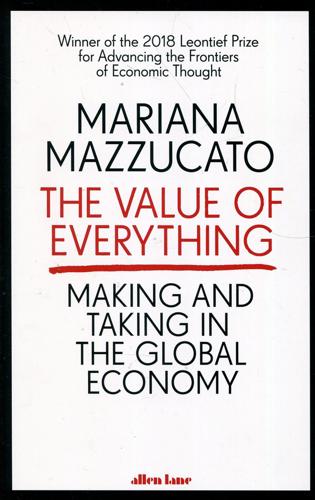
Value of Everything: An Antidote to Chaos The
by
Mariana Mazzucato
Published 25 Apr 2018
Such strategic patenting can be especially effective when a patent is obtained at an early stage of the development of a technology, before the technical standard is properly determined, or in fast-paced and patent-intensive fields such as ICT or biotech, where innovations are highly interdependent or complementary.31 An early patent gives its owner the chance of setting the dominant standard and blocking improvements others might make. The risk of infringing the patent can also prevent other firms from marketing their products or services. Another related and growing practice is ‘patent-trolling': the strategic holding of patents, not to develop or commercialize the underlying idea but deliberately to collect royalties through patent enforcement. A market for patents has emerged in which the value of the patent is divorced - or effectively monetized - from the value of the production of goods or services the patent makes possible.
…
It has been argued that strategic patenting can aid innovation by providing small firms with liquidity as they seek to bear the costs of development and commercialization32 - but the evidence suggests that this practice is also causing harm. James Bessen and Michael J. Meurer, authors of The Patent Litigation Explosion, estimate that ‘patent trolls cost defendant firms $29 billion per year in direct out-of-pocket costs'.33 Another study finds that in aggregate, ‘patent litigation destroys over $60 billion in firm wealth each year',34 with the costs falling more heavily on smaller firms.35 UNPRODUCTIVE ENTREPRENEURSHIP It might be said that these changes have, collectively, caused patents to result not in productive but in unproductive entrepreneurship.
…
Kattel, ‘Development as leapfrogging, not convergence, not catch-up: Towards Schumpeterian theories of finance and development', Review of political Economy, 28(2) (2016), pp. 270-88. 31. Mazzoleni and Nelson, ‘The benefits and costs of strong patent protection'. 32. S. Haber and S. H. Werfel, ‘Why do inventors sell to patent trolls? Experimental evidence for the asymmetry hypothesis', Stanford University Working Paper, 27 April 2015. 33. J. Bessen and M. J. Meurer, ‘The Patent Litigation Explosion', Loyola University Chicago Law Journal, 45(2) (2013), pp. 401-40: http://lawecommons.luc.edu/luclj/vol45/iss2/5 34. J. E. Bessen et al., ‘Trends in private patent costs and rents for publicly-traded United States firms'(March 2015).
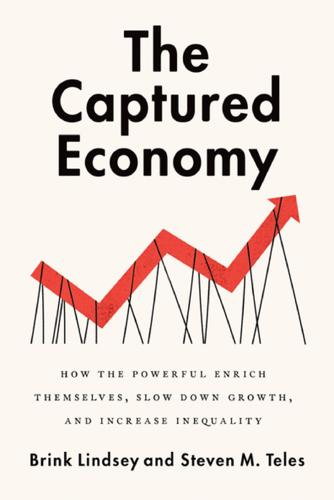
The Captured Economy: How the Powerful Enrich Themselves, Slow Down Growth, and Increase Inequality
by
Brink Lindsey
Published 12 Oct 2017
One study estimates that it would take two million patent attorneys working full time just to check every software-producing firm’s new products against all the new software patents issued in a given year; alas, there are only 40,000 practicing patent attorneys in the country.23 As a result, the patent system can act as a vast and uncharted minefield through which innovators must pass at their peril. The dysfunctions of the patent system have been exacerbated in recent years by the rise of so-called patent assertion entities, better known as “patent trolls.” Patent trolls are firms that neither manufacture nor sell products but instead specialize in amassing patent portfolios for the purpose of initiating infringement lawsuits. According to a White House report, lawsuits by patent trolls tripled between 2010 and 2012 alone, as the share of total patent infringement suits initiated by such firms rose from 29 percent to 62 percent.24 That’s right: most patent infringement suits are now brought by firms that make no products at all and whose chief activity is to prevent other companies from making products.
…
According to a White House report, lawsuits by patent trolls tripled between 2010 and 2012 alone, as the share of total patent infringement suits initiated by such firms rose from 29 percent to 62 percent.24 That’s right: most patent infringement suits are now brought by firms that make no products at all and whose chief activity is to prevent other companies from making products. A 2012 study found that the direct costs of defending patent troll suits (i.e., lawyers’ and licensing fees) came to $29 billion in 2011. To put that figure in context, it amounts to more than 10 percent of total annual R&D expenditures by US businesses.25 The threat of such predatory behavior has given rise to the practice of “defensive patenting,” seeking patents for one’s own products or amassing portfolios of others’ patents in the hope of protecting oneself from infringement suits.
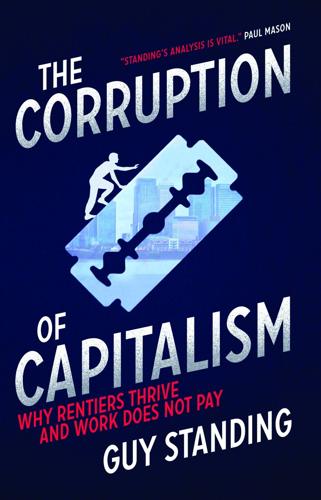
The Corruption of Capitalism: Why Rentiers Thrive and Work Does Not Pay
by
Guy Standing
Published 13 Jul 2016
And the patent system has distorted the direction of research and development, so that resources flow towards areas that promise high rental income, not to areas that would maximise the public good or benefit the less well-off. PATENT TROLLING AND HOOVERING In the USA, the monopoly rents gained from patents have spawned a lucrative industry of ‘patent trolls’: firms that produce nothing themselves but buy up unexploited or undervalued patents with the sole intention of tracking down supposed patent violators and demanding they pay licence fees for use of the patent or face court action. On being threatened by trolls, many corporations pay up simply to avoid lengthy and expensive legal procedures. Nevertheless, there were over 5,000 US lawsuits in 2014, driven by multiple filings by patent trolls, frequently aimed at big tech companies.
…
In areas such as pharmaceuticals and information and communications technologies there is also a problem of ‘patent thickets’, with rival firms holding key patents on some aspect of the overall technology. Witness the ‘smartphone patent wars’, started between Apple and Samsung, which have involved all the main smartphone manufacturers suing each other in various combinations and in various countries, with damages claims running into billions of dollars. Patent thickets and patent trolls have become impediments to innovation in the IT sector because companies cannot move without stumbling over someone else’s patent and having to pay licensing fees to multiple patent owners. A mobile phone, for instance, may have as many as 3,000 different patents. Similarly, in the pharmaceuticals sector, the development of combined drug formulations for people with Aids has been hampered because the drugs are patented by different companies.
…
A paper for the St Louis Federal Reserve, hardly a hotbed of radicalism, concluded: ‘The vast bulk of patents are not only useless, they don’t represent innovation at all. They are part of an arms race. Any successful large company needs a large portfolio of patents to fend off potential lawsuits by rivals and by patent trolls.’13 Besides hoovering up others’ patents, corporations have devised clever tactics to extend patents or the rental income from them. The pharmaceutical industry does this by ‘follow-on’ patenting or ‘ever-greening’ (making small changes to drug formulations and claiming a new invention), by clever marketing that maintains demand for a branded product after the patent expires, or by entering ‘pay-for-delay’ agreements with generic producers, enabling firms to continue to receive rental income beyond the patent term by delaying the entry of cheaper generics on the market.14 The USA, European Union members and some other countries have introduced another extension of rental income for drugs by granting pharmaceutical companies ‘data exclusivity’ and ‘market exclusivity’ beyond the patent term.
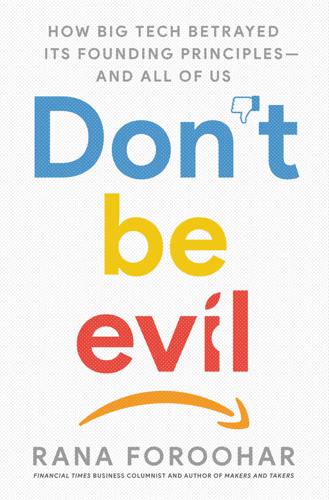
Don't Be Evil: How Big Tech Betrayed Its Founding Principles--And All of US
by
Rana Foroohar
Published 5 Nov 2019
Pushing back on the ease with which patents could be obtained and defended was great for Big Tech, which, of course, has its own IP to protect, but which was also increasingly monetizing the data and IP created by others. The majority of those companies had legitimate technologies and ideas to protect. But some—so-called patent trolls—were playing a game of legal arbitrage, filing as many patents as possible in order to get larger companies to settle with them for the use of their technology. By the time Barack Obama took office in 2009, the patent troll narrative had reached a fever pitch. It was a story line supported by many Big Tech companies14 that individually and via lobbying bodies pushed for the America Invents Act. The law established a non-court adjudication body, the Patent Trial and Appeal Board.
…
The law established a non-court adjudication body, the Patent Trial and Appeal Board. The idea was to save time and money with the non-court inter partes process, and indeed, patent claims went from taking three years and an average cost of $2 million to settle, to taking eighteen months and costing $200,000. The argument about patent trolls increasingly rang false. Yet the largest tech groups, particularly Google, lobbied hard for even more anti-patent legislation in 2013. Companies that supported that additional legislation said it would have cut out legal distortions around issues like the venue in which patent cases are heard, thereby cutting litigation costs.
…
“This second round of drastic cutbacks to the patent system was a commercial ploy designed not to stop abuse but to cut supply chain costs by devaluing others’ innovation.” The new legislation was ultimately held up in Congress. Meanwhile, Michelle Lee, Google’s former head of IP, eventually took over as head of the USPTO. In 2013, the White House put out an alarming report on the prevalence of patent trolls and their destructive effects, blaming them for two-thirds of patent suits. Yet subsequent research done by the nonpartisan Government Accountability Office put that number at one-fifth, and other data showed that the number of patent defendants had been roughly flat before and after the AIA. “The historical trend in litigation rates relative to patents granted clearly does not support claims that litigation in the past decades has ‘exploded’ above the long-term norm,” wrote Bowdoin College professor Zorina Khan in a 2013 paper entitled “Trolls and Other Patent Inventions.”
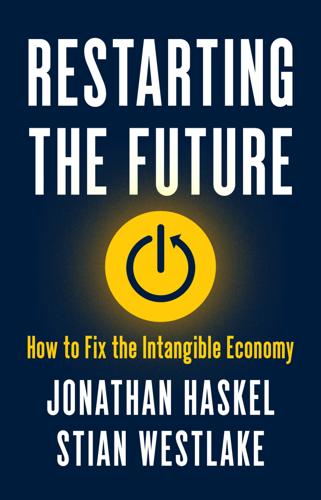
Restarting the Future: How to Fix the Intangible Economy
by
Jonathan Haskel
and
Stian Westlake
Published 4 Apr 2022
Selden was not an engineer but a patent attorney, and at the time he had not produced a single car. But he did file a patent in 1879 that he claimed covered all gasoline-powered cars (US patent 549,160).1 He made the most of this patent, forming in due course a cartel with a number of other businesses to demand royalties from every car sold—a precursor of the patent trolls who acquire obscure patents and use them to shake down tech companies today. A dynamic industry looked like it might fall victim to a greedy collective. Several years later, Henry Ford challenged the patent, eventually prevailing after an eight-year lawsuit, and the rest was history. But the situation could have turned out differently, moving the American auto industry onto a different path and affecting the wider history of the motorcar, too.
…
Thomas Philippon’s influential book The Great Reversal argues that large American businesses have used political influence and lobbying to chip away at antitrust law, protecting themselves from competition and reaping monopoly profits at the expense of customers, workers, and society at large.28 For many critics, this explains both the growth of vast businesses with few strong competitors (Google in search engines, Amazon in online retail) and the decline in productivity: Why innovate when you have no credible competition? Other critics point to the legal monopolies granted by patents, copyrights, and other intellectual property rights; when patent trolls acquire old patents for the sole purpose of suing legitimate businesses, or when media companies seek to have the copyrights of profitable franchises extended on a technicality, it is hard not to think that bad behaviour on the part of the powerful is holding the economy back. The narratives human beings are drawn to are powerful, but they are also dangerous, in that they may oversimplify or misrepresent what is really going on and contain really bad advice.
…
In 2000, Blackberry’s owners, RIM, and other mobile phone manufacturers were sued by NTP, a small company whose main activities were owning a set of wireless patents and suing mobile phone companies for infringing on them. NTP’s case was questionable at best, but after six years of costly litigation RIM ended up paying $612.5 million to settle the action. This case is a classic example of patent trolling—the use of patents to extort money from innovators, with few positive effects on the incentive to invest in innovation in the first place. Researchers James Bessen and Michael Meurer17 estimated that the costs of patent litigation represented 14 percent of total R&D costs in the late 1990s, a truly remarkable waste.
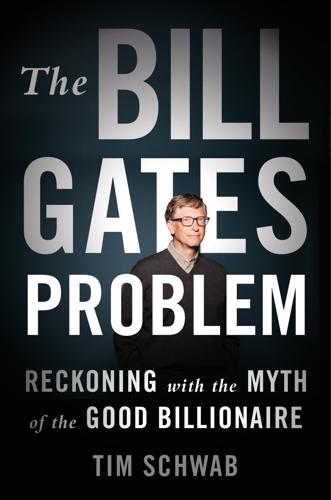
The Bill Gates Problem: Reckoning With the Myth of the Good Billionaire
by
Tim Schwab
Published 13 Nov 2023
” * * * IN 2011, THE popular podcast and public radio program This American Life broadcast an extraordinary story about patent trolls—people who make money suing companies for infringing on their patents. Often these are frivolous lawsuits, based on overly broad patent claims. But patent trolls know that it’s cheaper for companies to settle the cases with payments than to go to trial. “Today, lots of investors and innovators in Silicon Valley, maybe the majority, would tell you the patent system is doing the exact opposite of what it’s supposed to,” host Ira Glass noted. “It’s not promoting innovation, it’s stifling it. Because patent lawsuits are on the rise. Patent trolls are on the move. Patent lawsuits are so common now that it’s hard to find even one semi-successful startup in Silicon Valley that has not been hit with a suit.
…
At the center of this story was a company named Intellectual Ventures, run by one of Bill Gates’s longest-standing deputies, Nathan Myhrvold (though Gates isn’t mentioned on the show). After leaving Microsoft in 1999, Myhrvold launched the company which, he said, “invests in invention.” He continued: “I think you would find almost anyone who stands up for their patent rights has been called a patent troll.” This version of the story—the invention-forward narrative—had found a warm reception a few years earlier in the New Yorker. Writer Malcom Gladwell described Intellectual Ventures, or IV, as a kind of fizzing brain trust, a company where great minds pushed one another to new heights. Gladwell recounts how a single informal dinner involving eight of IV’s big-idea men led to thirty-six different invention ideas that might be patented.
…
The reporters landed on a deeply troubling portrait of this very destructive new business model, as the patent litigation zeitgeist had unleashed a growing army of trolls challenging everything and everyone. When one group claimed to have a patent on podcasting, comedian and podcaster Marc Maron went public, calling the effort a “shakedown” for money. And IV became the public face of this expanding, invasive species, the patent troll. “In other words, Intellectual Ventures goes around to companies and says, hey, you want to protect yourself from lawsuits? We own tons of patents,” journalist Alex Blumberg reported in the story. “Make a deal with us. Our patents will not only cover everything you’re doing in your business, [but] no one will dare sue you.”
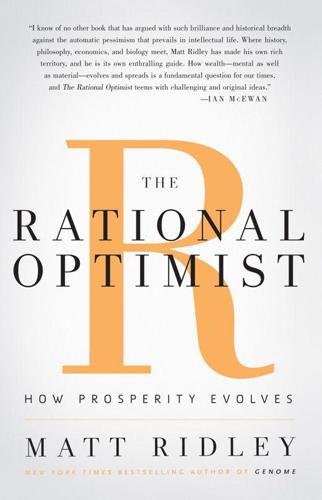
The Rational Optimist: How Prosperity Evolves
by
Matt Ridley
Published 17 May 2010
Today, the biggest generators of new patents in the US system are ‘patent trolls’ – firms that buy up weak patent applications with no intention of making the products in question, but with every intention of making money by suing those who infringe them. Research in Motion, the Canadian company that manufactures BlackBerries, had to pay $600m to a small patent troll called NTP that did no manufacturing itself but had acquired contested patents with the aim of profiting from their defence. Michael Heller’s analogy for the patent trolls is to the state of the river Rhine between the decay of Holy Roman imperial power and the emergence of modern states.
…
Benkler, Y. 2006. The Wealth of Networks. Yale University Press. p. 265 ‘the biggest generators of new patents in the US system are “patent trolls” – firms that buy up weak patent applications’. I am indebted to R. Litan for this information. p. 265 ‘Research in Motion, the Canadian company that manufactures BlackBerries’. Baumol, W.J., Litan, R.E. and Schramm, C.J. 2007. Good Capitalism, Bad Capitalism. Yale University Press. p. 265 ‘Michael Heller’s analogy for the patent trolls is to the state of the river Rhine between the decay of Holy Roman imperial power and the emergence of modern states’. Heller, M. 2008.
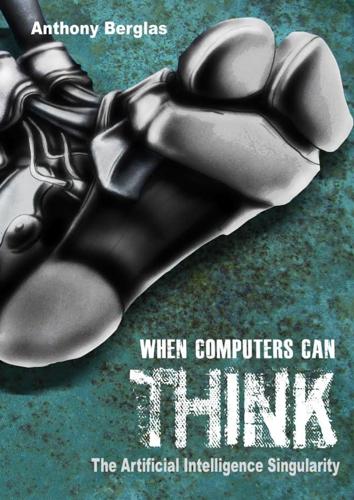
When Computers Can Think: The Artificial Intelligence Singularity
by
Anthony Berglas
,
William Black
,
Samantha Thalind
,
Max Scratchmann
and
Michelle Estes
Published 28 Feb 2015
Genetically engineered crops are widely dispersed in the environment, and it is even possible to purchase genetically engineered GloFish that glow in the dark. The conference certainly did not curtail the use of genetic engineering for the development of biological weapons. Patent trolls One fanciful hypothesis is that the patent trolls and legal system will be our saviours. The development of an AGI would provide a rich source of patents both trivial and real. Where there are patents, there are wonderful opportunities for aggressive litigation. If exploited effectively, patent wars could make the development of artificial intelligence uneconomical.
…
Wishful thinking 18. Whole brain emulation 19. Chain of AGIs 20. Running away 21. Just do not build an AGI 8. Political Will 1. Atom bombs 2. Iran's atomic ambitions 3. Stuxnet 4. Glass houses 5. Zero day exploits 6. Practicalities of abstinence 7. Restrict computer hardware 8. Asilomar conference 9. Patent trolls 10. Does it really matter? 9. Conclusion 1. Geological history 2. History of science 3. Natural selection 4. Human instincts 5. Intelligence 6. AI technologies 7. Building an AGI 8. Semi-intelligent machines 9. Goals 10. Prognosis 10. Bibliography and Notes When Computers Can Think The Artificial Intelligence Singularity Anthony Berglas, Ph.D.
…
If exploited effectively, patent wars could make the development of artificial intelligence uneconomical. Organizations would spend their budgets on patent attorneys and lawyers, with little remaining for any real engineering, which would be pointless anyway because nothing could be brought to market without extensive, destructive litigation. So we have misunderstood the motivations of patent trolls and attorneys. They are not greedy, self-serving parasites whose only interest is to promote themselves at the expense of others. Rather, they are on a mission to save humanity from uncontrollable advances in technology. Does it really matter? After millennia of conflict and hunger, mankind seems to be finally becoming civilized.
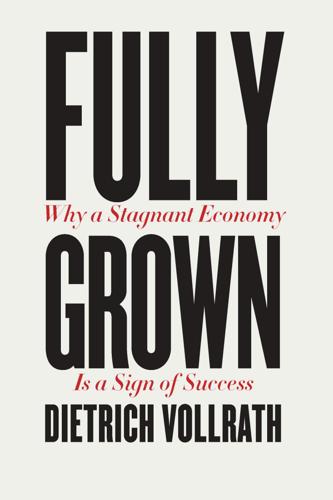
Fully Grown: Why a Stagnant Economy Is a Sign of Success
by
Dietrich Vollrath
Published 6 Jan 2020
Or did this patent just help Amazon shut out some potential competitors back in the days before it was Amazon as we know it today, when it was just an online bookseller with aspirations to something more? The group of “patent troll” firms is something of a textbook example of IPRs creating market power with no benefits. These firms buy up patents and run around suing companies for infringement, mostly hoping to get some sort of settlement, while their targets hope to avoid actual litigation. They provide a useful benchmark for evaluating other firms. Do we think the rise in market power and markups over time is because firms are acting more and more like patent trolls, or because they have distinct innovations that are worth protecting? You wouldn’t call Apple a patent troll. Or would you? Apple sued Samsung in 2011 because Samsung produced a smartphone that was a rectangle with rounded edges and had a grid of app icons on the main screen.
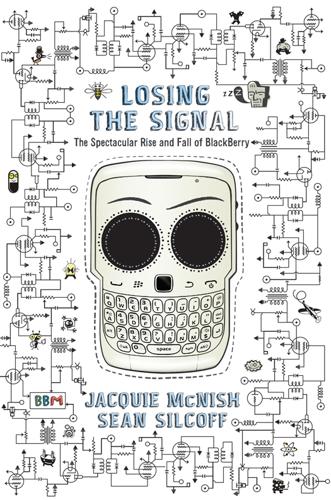
Losing the Signal: The Spectacular Rise and Fall of BlackBerry
by
Jacquie McNish
and
Sean Silcoff
Published 6 Apr 2015
Stout saw an opportunity to parlay Campana’s patent rights into a revenue stream of licensing fees at a time wireless data was taking off. The two men formed NTP to hold the stranded patents. The skeletal company was part of a growing breed of patent trolls whose primary business was to sue businesses allegedly infringing on their rights. Lawyers represented trolls on the contingency they would share a portion of any court awards. It was a booming business. U.S. lawsuits filed by patent trolls rose sharply to 428 in 2007 and 2,750 just five years later, by which point they accounted for nearly 60 percent of all U.S. patent lawsuits, double the level of five years earlier.4 Stout started the hunt for licensing fees by writing letters to dozens of communications companies suggesting they were infringing on its technology.
…
He lobbied governments on both sides of the border and spoke to business groups to push for reforms that might prevent the legal brinksmanship that nearly flattened RIM. Washington and Ottawa were receptive, but progress was slow. In this vacuum, tech companies strengthened their legal rights by acquiring patent collections from struggling rivals. With Motorola’s patent chest, RIM would hold a much stronger hand against patent trolls and competitors alike. Balsillie and senior RIM executives and bankers met frequently in Schaumburg with Brown and his team during the spring and summer of 2008. Balsillie initially believed the takeover would happen. Motorola was under enormous pressure from investors to sell its mobility business.

Content: Selected Essays on Technology, Creativity, Copyright, and the Future of the Future
by
Cory Doctorow
Published 15 Sep 2008
So long as everyone with a huge portfolio of unexamined, overlapping, generous patents was competing with similarly situated manufacturers, there was a mutually assured destruction — a kind of detente represented by cross-licensing deals for patent portfolios. But the rise of the patent troll changed all that. Patent trolls don't make products. They make lawsuits. They buy up the ridiculous patents of failed companies and sue the everloving hell out of everyone they can find, building up a war-chest from easy victories against little guys that can be used to fund more serious campaigns against larger organizations.

Markets, State, and People: Economics for Public Policy
by
Diane Coyle
Published 14 Jan 2020
.* The same kind of copyright legislation made unlocking a phone illegal in many places, although the law is often breached. The US Copyright Office decided unlocking phones to repair them was allowed under the DMCA only in October 2018—and at the same time allowed people with medical implants the right to access data generated about their health.** The digital world has also spawned what are popularly known as patent trolls, or more formally, non-practicing entities or NPEs. These individuals or businesses take out or buy broad patents and threaten to sue other, genuine, technology businesses for patent infringement. NPEs have thrived in the American legal landscape. The number of these extortionate lawsuits has increased more than tenfold since 2000, to the detriment of economic growth and employment in US states that had not outlawed the NPEs’ excesses.*** * http://www.wired.com/2015/02/new-high-tech-farm-equipment-nightmare-farmers/; http://www.npr.org/sections/alltechconsidered/2015/08/17/432601480/diy-tractor-repair-runs-afoul-of-copyright-law; https://www.technologyreview.com/s/602026/how-copyright-law-stifles-your-right-to-tinker-with-tech/. ** https://www.govinfo.gov/content/pkg/FR-2018-10-26/pdf/2018-23241.pdf. *** Ian Appel, Joan Farre-Mensa, and Elena Simintzi (2017), “Patent Trolls and Startup Employment, HBS Working Paper No. 17-072 (February).
…
.*** * http://www.wired.com/2015/02/new-high-tech-farm-equipment-nightmare-farmers/; http://www.npr.org/sections/alltechconsidered/2015/08/17/432601480/diy-tractor-repair-runs-afoul-of-copyright-law; https://www.technologyreview.com/s/602026/how-copyright-law-stifles-your-right-to-tinker-with-tech/. ** https://www.govinfo.gov/content/pkg/FR-2018-10-26/pdf/2018-23241.pdf. *** Ian Appel, Joan Farre-Mensa, and Elena Simintzi (2017), “Patent Trolls and Startup Employment, HBS Working Paper No. 17-072 (February). The framework of social norms in the digital domain is contested and still being shaped. The role of assumptions about norms or conventional patterns of behavior in defining property rights is often overlooked. For example, hotels leave out signs saying the bathrobes can be purchased, in case some guests think it’s OK to take them home, like the spare shampoo.
…
See energy oligopoly, 47 Olivetti, 107 Olson, Mancur, 267 Only the Paranoid Survive (Grove), 46 OPEC (Organization of the Petroleum Exporting Countries), 23, 57, 100, 273 Openreach (broadband company), 120, 121 OpenTable, 168 opinion polls, 180–81 opportunity costs, 77, 303, 306 opting out vs. opting in, 185, 187, 194 option value, 321 Orange (telecommunications company), 121 Oresund Bridge, 30 organ donation, 197 Organization for Economic Cooperation and Development (OECD), 24, 290 Orwell, George, 150 Ostrom, Elinor, 138, 143–47, 152, 155, 165 Ostrom, Vincent, 143 output efficiency (product mix efficiency), 10, 40 over-confidence, 173, 182, 199 over-fishing, 139, 143 over-grazing, 138 over-investment (gold plating), 113 Pacific Gas and Electric, 89 Pareto, Vilfredo, 9 Pareto efficiency. See efficiency Paris Metro, 308 partial equilibrium, 13, 47 patent box, 129–30 patents, 51, 61, 80 patent trolls, 151 paternalism, 172, 173, 195, 196–97 payday loans, 189 peak loading problem, 84 peer-to-peer lending, 81 Peltzman effect (risk compensation), 274, 275 pensions, 21, 186–87, 194, 202, 233, 251, 252 PepsiCo, 56 pharmaceuticals, 129–30, 247, 263 photovoltaics (PV), 126, 127 Pigou, Arthur, 19, 25 Piketty, Thomas, 216, 223, 226, 231 policing, 157 policy appraisal, 302–4; elements of, 303; evaluation distinguished from, 299; tools of, 297 policy evaluation: appraisal distinguished from, 299; econometric, 300–301; rarity of, 297; research on, 298, 300 political parties, 160 pollution, 13, 25, 32, 140, 147, 320 positional goods, 138, 161–62, 165, 167, 169 postal services, 21–22, 101, 104, 105 poverty, 203, 206; absolute vs. relative, 212, 213, 214 poverty gap, 213 poverty trap (welfare trap), 234, 236 power, in statistics, 301–2 PowerGen, 87 present bias (hyperbolic discounting), 183–85, 190, 316 present value, 183–84 price controls, 67, 112 price elasticity of demand, 19, 47, 79, 152 price fixing, 55 principal-agent problems, 284–86, 289 private roads, 29, 30 privatization, 69, 72, 280; of airlines, 106; defined, 108; impetus for, 109–11; mixed success of, 116–25; regulation following, 111–16; reversals of, 100–101, 103; in Turkey, 117; in United Kingdom, 87–88, 98, 100, 102–3, 114–22, 124–25, 258, 290 process innovation, 51 producer surplus, 47–49 product innovation, 51 production possibilities frontier, 10, 40 productivity: competition linked to, 46–47, 53, 110–11, 122; health linked to, 211; privatization and, 116–17, 121; of state-owned enterprises, 109 product mix efficiency (output efficiency), 10, 40 progressive taxation, 2, 7–8, 206, 208, 213, 225, 228–29, 232 Prohibition, 269 projection bias, 184 property rights, 33–34, 226, 291, 341; ambiguous, 148, 149; digital, 149, 150; over commons, 141, 145, 147, 165, 168; socially constructed, 152, 166 prospect theory, 178 PSA Peugeot Citroën, 63 public choice theory, 22–23, 256, 259–62, 271, 280, 289, 293 public goods, 1, 8, 159, 174, 243–45; examples of, 25–26, 27; features of, 28; financing of, 27–28; private goods vs., 27; pure vs. excludable, 25–26; research as, 128–29, 134 public-private partnerships, 29, 30, 100, 108, 257 public transport, 22, 80, 105, 119, 243, 245, 251, 276, 318; in London, 278, 308 public value, 327–29 Putnam, Robert, 155 quasi-hyperbolic discounting, 183–84 queuing, 140, 167 radio spectrum, 25, 31, 61, 140 railroads, 278; employment declines in, 116; fares of, 119; nationalization of, 100, 104, 125; as natural monopoly, 45, 46, 55, 61, 91, 98, 123; safety compromised in, 118 rainforest, 141 Ramsey, Frank, 312 Ramsey rule, 312, 313 RAND Corporation, 108 randomized control trials (RCTs), 298, 329–32 rationing, 142, 166–67, 168, 247 Reagan, Ronald, 22, 23, 70, 100, 256, 258 recessions, 209, 251 redistribution, 6, 227; through education, 8, 243, 251; efficiency and, 11, 225, 251; lump-sum, 14; Pareto efficiency distinguished from, 11–12, 14; through public services, 8, 243–45, 247; rationale for, 202; through taxation, 2, 7–8, 206, 208, 213, 225, 228–29, 232.

Rentier Capitalism: Who Owns the Economy, and Who Pays for It?
by
Brett Christophers
Published 17 Nov 2020
Pitkethly, ‘Intellectual Property Strategy in Japanese and UK Companies: Patent Licensing Decisions and Learning Opportunities’, Research Policy 30 (2001), pp. 425–42. 92. Research has found that non-practising entities in the UK were responsible for 11 per cent of all patent suits filed between 2000 and 2010. See C. Helmers, B. Love and L. McDonagh, ‘Is There a Patent Troll Problem in the UK?’, Fordham Intellectual Property, Media & Entertainment Law Journal 24: 2 (2014), pp. 509–53. 93. J. Mullin, ‘Patent Troll’s Stock Soars 20% after Court Victory over Samsung, Huawei’, 24 November 2015, at arstechnica.com. 94. S. K. Rathod, ‘Ever-greening: A Status Check in Selected Countries’, Journal of Generic Medicines 7 (2010), pp. 227–42, at p. 227. 95.
…
They do this in multiple ways, very often supported by domestic courts and regulators that – in line with their penchant for strict enforcement – appear to be more accommodating to ‘pigging out’ than their peers in other jurisdictions. In this regard, the example of US company Unwired Planet is an instructive one to begin with. It is an example of what has come to be referred to as a non-practising entity – or, more pejoratively, a ‘patent troll’: a company that exploits patents not by producing the patented product or using the patented process, but solely by licensing its patent rights and/or enforcing those rights against alleged infringers. Non-practising entities arguably represent the very apotheosis of IP-related rent-seeking, inasmuch as there is not even a pretence of innovation or economic production.
…
See also contract rents; contracts Outsourcing Playbook, 274 owner-occupancy, 46, 332–334, 336–337, 339, 344, 366, 375 Oxfam, 62 Oxford Economics (OE), 231, 241–242, 246 Oxford Sciences Innovation (OSI), 147 Oxford University Innovation (OUI), 147 Palma, José, 21 Parker, David, 280, 319 Pasquale, Frank, 208 Patel, Jag, 256 Patent Box, 168–169 Patent Co-operation Treaty, 146 patent trolls, 173–174, 440n92 patents, xxvi, 8, 139, 143, 158, 440n96; applications for, 146–148; European, 157; evergreening of, 174–178; and monopoly power, 139, 150; tax relief on exploitation of, 168–169. See also intellectual property; intellectual property rents Patents Act (1977), 152 patrimonial capital, 88, 90, 390–392, 412–413 pay for delay agreements, 175 Pebble mine, 98 pensions, xxxv, 87, 89, 93, 365–366 performativity, 101–102, 120–121, 150 Persimmon, 9, 356, 359–360, 362–363 Pesole, Annarosa, 199, 218–219 Petitjean, Olivier, 404 petits rentiers, 42–43, 88, 90, 364–365, 371, 373, 418 petroleum colonization, 108 Petroleum Development of Oman, 101 Petroleum Reserves Group (PRG), 102 Petroleum Revenue Tax, 124, 134 pharmaceuticals sector: evergreening of intellectual property, 174–178; importance to UK economy, 137–138; intellectual property rents in, 16, 151; lobbying by, 153–156 Pickens, T.
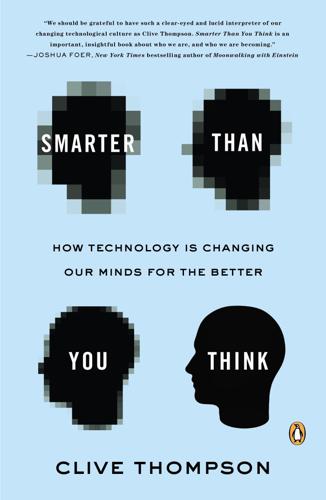
Smarter Than You Think: How Technology Is Changing Our Minds for the Better
by
Clive Thompson
Published 11 Sep 2013
Handing a patent on an invention to one person creates artificial scarcity. It is a crude device, and patent offices have been horribly abused in recent years by “patent trolls”; they’re people who get a patent for something (either by conceiving the idea themselves, or buying it) without any intention of actually producing the invention—it’s purely so they can sue, or soak, people who go to market with the same concept. Patent trolls employ the concept of multiples in a perverted reverse, using the common nature of new ideas to hold all inventors hostage. I’ve talked to entrepreneurs who tell me they’d like to talk openly online about what they’re working on.
…
See theory of multiples multiplexing, 142 multitasking, pros/cons of, 135–36 Mundaneum, 122 Munroe, Randall, 116 Muybridge, Eadweard, 97 Myrdal, Gunnar, 252 Myung-bak, Lee, 260 Nabokov, Vladimir, 23 Napier, John, 59 narcissism, and social network postings, 220–22 National Assessment of Educational Progress (NAEP), 183–84 Natsidia, Christoph, 16 “Nature of the Firm, The” (Coase), 152 Navalny, Alexei, 105–6 Naver, 74–75 Netflix, 169 neurasthenia, 224 Nielsen, Michael, 160 Nilsson, Nils, 103 Nintendo, 149 Nook, 82 Norman, Don, 116 note taking, 120–21 novels, early, critics of, 223–24 Obama, Barack, 88, 239 ObscuraCam, 274 Occupy Wall Street, 81 Odnoklassniki, 269 Offer, Daniel, 27 Ogburn, William, 58–60 O’Gorman, Hubert, 251–52 Okolloh, Ory, 45–46, 61–63 omniopticon, 238, 241 O’Neill, Michael, 216–17 “On Exactitude in Science” (Borges), 33 open-source, 112 O’Reilly, Tim, 76 Orwell, George, 106–7, 236–37 Otlet, Paul, 122–23 Otpor!, 267 Pac-Man (video game), 148 PageRank (Google), 33 Pan, Bing, 204 Panagopoulos, Costas, 83–85 panopticon, 236–37 Papert, Seymour, 188–93 Pariser, Eli, 230–31 Park, Clara Claiborne, 132–33 partisan online discourse, 261–63 Patel, Rupal, 19 patent trolls, 64 Pearce, Katy, 269 penicillin, discovery of, 60–61, 63–64 Penny, Laurie, 77 Perry, Rick, 24 Phaedrus (Plato), 68–69, 118 photographic literacy, 105–10 filters, use of, 109–10 LOLcat-crafting, 108–9 photomanipulation, 105–8 political uses, 105–7, 109, 247–48 Photoshop, 107 Pinboard, 154–55 Pinterest, 221 Plato, 68, 117 pluralistic ignorance Egypt, breaking down in, 255–58 social effects of, 252–53 Plutchak, Scott, 208 Pocket, 136 Poincaré, Henri, 131–32 Poke, 242 politics and political activism, 245–77.
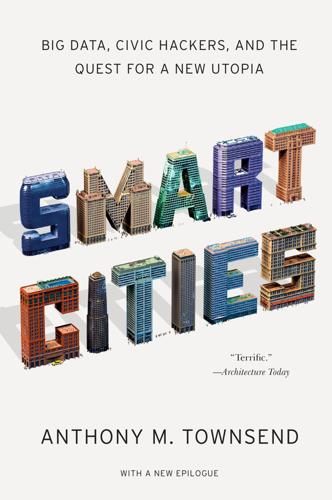
Smart Cities: Big Data, Civic Hackers, and the Quest for a New Utopia
by
Anthony M. Townsend
Published 29 Sep 2013
The political implications of ‘smart city’ technology,” Global Urbanist, last modified February 11, 2011, http://globalurbanist.com/2011/02/17/can-you-have-a-private-city-the-political-implications-of-smart-city-technology. 14Jennifer Pahlka, panel discussion, Ten Year Forecast Retreat, Institute for the Future, Sausalito, CA, April 15, 2012. 15Carlo Ratti, lecture, Forum on Future Cities, MIT SENSEable City Lab and the Rockefeller Foundation, Cambridge, MA, April 12, 2011, http://techtv.mit.edu/collections/senseable/videos/12257-smart-smarter-smartest-cities. 16IBM Corp., “Citi Partners with Streetline and IBM to Provide $25 Million Financing for Cities to Adopt Smart Parking Technology,” last modified April 9, 2012, http://www-03.ibm.com/press/us/en/pressrelease/37424.wss. 17Eve Batey, “Muni App Makers, Rejoice: MTA, Apple Disputes Private Company’s Claims To Own Arrival Data,” SF Appeal Online Newspaper, last modified August 19, 2009, http://sfappeal.com/news/2009/08/mike-smith-of-nextbus-said.php. 18Joe Mullin, “A New Target for Tech Patent Trolls: Cash-Strapped American Cities,” Ars Technica, last modified March 15, 2012, http://arstechnica.com/tech-policy/2012/03/a-new-low-for-patent-trolls-targeting-cash-strapped-cities/. 19John Tolva, interview by author, November 10, 2011. 20Steve W. Usselman, “Unbundling IBM: Antitrust and the Incentives to Innovation in American Computing,” in Clarke, Lamoreaux, and Usselman, eds., The Challenge of Remaining Innovative (Palo Alto, CA: Stanford University Press, 2009), 251. 21Dom Ricci, remarks, X-Cities 3: Heavy Weather—Design and Governance in Rio de Janeiro and Beyond, Columbia University Studio-X, New York, April 10, 2012. 22Noelle Knell, “Detroit Pulls Plug on 311 Call Center,” Government Technology, last modified July 11, 2012, http://www.govtech.com/e-government/Detroit-Pulls-Plug-on-311-Call-Center.html. 23Michael Batty, “A Chronicle of Scientific Planning: The Anglo-American Modeling Experience,” Journal of the American Planning Association 60, no. 1 (1994): 7. 24Michael Batty, telephone interview by author, August 19, 2010. 25Douglass B.
…
They lack the capacity to even negotiate controls over the data streams generated by their citizens as they interact with private vendors’ technologies. Watchdog groups will need to step in and identify where the crucial conflicts lie. (And in fact, the Electronic Frontier Foundation is doing just this on behalf of a number of transit agencies being sued by another transit-arrival patent troll, Luxembourg-based ArrivalStar).18 Cities will need regular audits, perhaps conducted by a chief privacy officer or chief data officer charged with extending public control over government- and citizen-generated data. An intriguing option is to hand off this data to a trust equipped to manage it on behalf of citizens, covering its costs—and possibly generating a revenue stream for the city—by licensing the data.
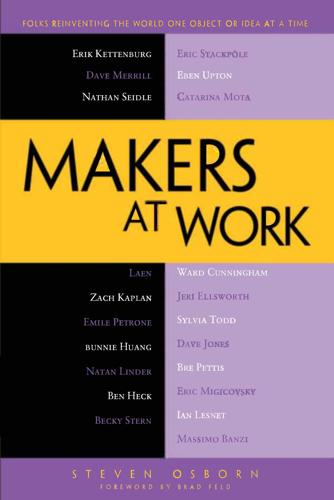
Makers at Work: Folks Reinventing the World One Object or Idea at a Time
by
Steven Osborn
Published 17 Sep 2013
Although some traditional businesses see information sharing as a threat, a lot of research shows that, with the possible exception of some very specific cases, such as pharmaceuticals, intellectual property is not that important. Osborn: Unless your business is extorting money out of other companies, then it is. Mota: Unless you’re a patent troll. Did you see that someone actually tried to patent being a patent troll? Osborn: I saw that. That was brilliant. Mota: I loved that. Intellectual property is more a construct than a reality. It was put into place because it was assumed that people would not create if they could not make money off of their creations and that they could not make money off of their creations without exclusive rights.
…
But what happened was, once those laws were put in place, instead of fostering business models that were not based on exclusive rights, they fostered the emergence of business practices that took advantage of intellectual property mechanisms. And that’s what we’re talking about in the case of patent trolling, or secretive information, or traditional content, music, movie, and book businesses. These business models are based on the fact that the legal tools are there, so they use these legal tools to build their businesses. When the underlying scarcity that gave rise to intellectual property disappeared—when we switched from actually having to buy or make physical CDs and tapes to just being able to share anything with anyone at marginally zero cost—those business models became endangered.
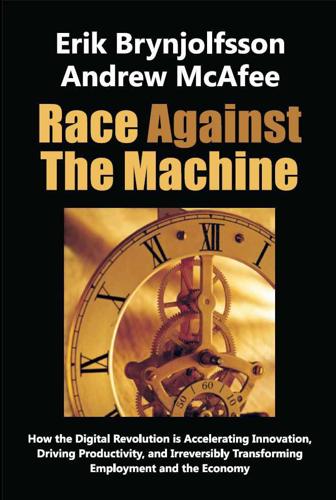
Race Against the Machine: How the Digital Revolution Is Accelerating Innovation, Driving Productivity, and Irreversibly Transforming Employment and the Economy
by
Erik Brynjolfsson
Published 23 Jan 2012
This sector attracts a disproportionate number of the best and the brightest minds and technologies, in part because the government effectively guarantees “too big to fail” institutions. 18. Reform the patent system. Not only does it take years to issue good patents due to the backlog and shortage of qualified examiners, but too many low-quality patents are issued, clogging our courts. As a result, patent trolls are chilling innovation rather than encouraging it. 19. Shorten, rather than lengthen, copyright periods and increase the flexibility of fair use. Copyright covers too much digital content. Rather than encouraging innovation, as specified in the Constitution, excessive restrictions like the Sonny Bono Copyright Term Extension Act inhibit mixing and matching of content and using it creatively in new ways.
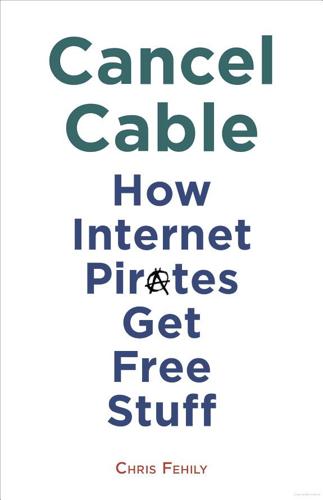
Cancel Cable: How Internet Pirates Get Free Stuff
by
Chris Fehily
Published 1 Feb 2011
Retail DVDs, for example, are region-coded to play only in specific parts of the world. Retail music, games, ebooks, and software often have DRM restrictions too. (DRM isn’t about impeding pirates but repeatedly selling ordinary customers the same content in different formats.) Opt out. Every act of piracy nibbles at the world of enforcers, patent trolls, ad agencies, techno-optimists, free-marketeers, agents, graphic designers, and flag wavers. Positive liberty. Pirates’ actions embody the system that they want to create: self-organization, mutual aid, direct action, autonomy, voluntary association, opposition to power, exposure and subversion of coercive institutions, and means consonant with ends.
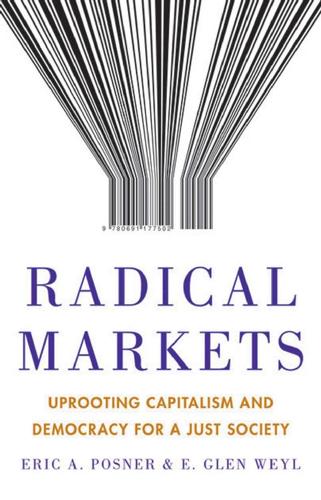
Radical Markets: Uprooting Capitalism and Democracy for a Just Society
by
Eric Posner
and
E. Weyl
Published 14 May 2018
They are betting that someone who has a pressing reason for using the name will someday offer a lot of money for it.60 For example, during the 2016 presidential cycle in the United States, clicking on the domain address http://www.clintonkaine.com led to an empty page; a cybersquatter had held out for a price the Clinton-Kaine campaign was unwilling to pay. The owner ended up selling instead to a group affiliated with the rival campaign.61 A COST could help address holdout in this and other forms of intellectual property, such as those created by patent trolls who buy up patents and refuse to sell them to technology companies except at exorbitant prices that many companies refuse to pay.62 A COST would be useful for handling many other public assets. For example, ranchers lease grazing rights from the government, which often doesn’t know how to price those rights.
…
Lipton, Beyond Cybersquatting: Taking Domain Name Disputes Past Trademark Policy, 40 Wake Forest Law Review 1361 (2005). 61. Hope King, Owner of ClintonKaine.com wants $90,000, CNN Money (July 27, 2016), http://money.cnn.com/2016/07/27/technology/clinton-kaine-website/index.html. 62. Lauren Cohen, Umit G. Gurun, & Scott Duke Kominers, The Growing Problem of Patent Trolling, 352 Science 521 (2016). 63. It is increasingly popular to refer to such a universal refundable tax credit as a “universal basic income” (UBI). We resist this description because a UBI is typically described as being indexed to some notion of an income required to live a decent life, a notion that we consider ill-defined and which, in any case, is not the aim of our proposal.
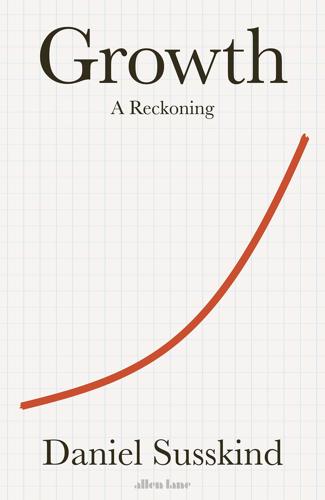
Growth: A Reckoning
by
Daniel Susskind
Published 16 Apr 2024
Fisher, ‘lawyers and politicians were more likely to refer to patents and copyrights as “monopolies” than they were to refer to them as forms of “property”.’28 And today, companies intentionally build up ‘patent thickets’, dense collections of overlapping protections that make it extremely difficult for potential rivals to commercialize new technologies.29 It is estimated that there are 250,000 patents related to smartphones, for example, and any potential upstart would in theory need to contend with each of these to be assured of a litigation-free launch for a competing product.30 Then there are ‘patent trolls’ and ‘patent hoarders’, predatory companies who build large collections of patents, not to deploy them in the market but solely to catch unsuspecting innovators who accidentally infringe upon them, hitting them with litigation in hopes of profit. Taken together, the problems with the IP framework – that it is anachronistic, imperialistic and weaponized – show that it is not fit for its purpose.
…
In almost all countries, for example, a patent requires that an invention is ‘non-obvious’ – but as the farcical examples above demonstrate, that criterion is clearly not applied in practice. Another useful change would be to introduce a ‘use it or lose it’ rule. Some 40 to 90 per cent of patents, reports The Economist, are never used or licensed; terminating idle patents like these would help prune patent thickets and punish patent trolls.31 A further reform is simply to provide more funding for properly operating the existing IP regime: many lapses in judgement are due to the system being overstretched. The US Coast Guard, for instance, has more than three times the budget of the US Patent Office – a signal of relative priority that is not unique to the US.32 Finally, it is also worth exploring alternatives to IP.
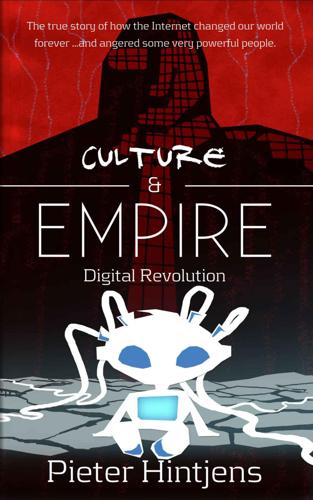
Culture & Empire: Digital Revolution
by
Pieter Hintjens
Published 11 Mar 2013
The natural monopoly can benefit users by releasing value. A good example: the Internet. It can also punish them by capturing users and then taxing them without mercy. Your mobile phone bill is a case in point. The dream of every self-respecting patent troll is to get patents on a widely used standard, CSIRO-style. Owning a standard allows the owners -- usually a consortium of firms, often including patent trolls -- decide who gets to implement it. This is how large firms keep control of the audio and video encoding markets, the mobile phone market, WiFi, and so on. Consortium standards are generally backed up with patents (because it's a far easier argument to the regulator to say, "We're licensing our patents under a Fair!
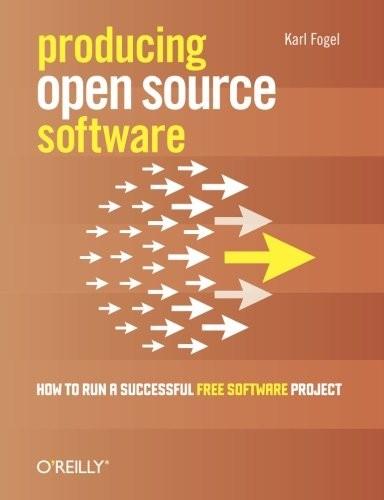
Producing Open Source Software: How to Run a Successful Free Software Project
by
Karl Fogel
Published 13 Oct 2005
Individual developers often understand the nuances of various open source licenses, but they generally do not have the time or resources to competently handle legal issues themselves. If your company has a legal department, it can help a project by assisting with trademark issues, copyright license ownership and compatibility questions, defense against patent trolls, etc. If the project decides to organize formally, or to join an existing umbrella organization, your legal department can help with issues of corporate law, asset transfer, reviewing agreements, and other due diligence matters. Some more concrete ideas of what sorts of legal help might be useful are discussed in Chapter 9, Legal Matters: Licenses, Copyrights, Trademarks and Patents.
…
Recent developments, such as the 2014 decision by the U.S. Supreme Court against the patentability of abstract ideas, in Alice Corp. v. CLS Bank (en.wikipedia.org/wiki/Alice_Corp._v._CLS_Bank_International), have made the future of software patents unpredictable. But there is so much money to be extracted via infringement claims, in particular by patent trolls but in general by any entity with a large patent portfolio and a lack of other revenue sources, that I am not optimistic this fight will be over any time soon. If you want to learn more about the problem, there are good links in the Wikipedia article en.wikipedia.org/wiki/Software_patent. I've also written some blog posts summarizing the arguments against software patents, collected at www.rants.org/patent-posts.

People, Power, and Profits: Progressive Capitalism for an Age of Discontent
by
Joseph E. Stiglitz
Published 22 Apr 2019
Salop, “Competition and Cooperation in the Market for Exclusionary Rights,” American Economic Review 76, no. 2 (1986): 109–13; Steven C. Salop and David T. Scheffman, “Raising Rivals’ Costs,” American Economic Review 73, no. 2 (1983): 267–71. 34.Even established firms sometimes have trouble, and even when the patent is not held by a large company but by what are called “patent trolls,” firms whose main business model is not innovation—bringing their patent to market—but suing for patent infringement. This happened to Blackberry, at one time one of the leading mobile phone companies, which, after extensive litigation, had to pay $612 million just to continue offering its services, whether the patents which it allegedly infringed were eventually held to be valid or not.
…
Sebelius, 330n20 national identity, capitalism’s effect on, xxvi national income, 53–54 National Labor Relations Board, 292n60 national wealth, 54 nativism, xxi, 26, 240 natural monopolies, 61, 134 Nazi Germany, 15–16 negative sum game, 113 neoliberalism, 150, 238, 240; See also market fundamentalism; market liberalization Netflix, 148 net neutrality, 147–48 Netscape, 58 Neumann, John von, 119 Never Trumpers, 26 New Deal, 12, 242 “new economy,” 32, 61 news media, See media 1984 (Orwell), 128 Nixon, Richard M., 210 noncompete clauses, 65–66 nongovernmental organizations, 148–49, 245 norms fragility of, 230–36 Republican violation of, 166–67 and revolving door, 173 not-for-profit universities, 148–49 “notice and comment,” 146 Nuance, 286n34 nutrition, access to, 203 OASDI (Old Age, Survivors, and Disability Insurance), 13 Obama, Barack, and administration antitrust actions, 62 bank bailout (2008), 102–3, 113–14 Merrick Garland nomination, 166–67 inequality issue, 39–40 public option for Affordable Care Act, 211 Obamacare (Affordable Care Act), 40, 211–13 obesity, 146–47, 277–78n37 OECD (Organization of Economic Cooperation and Development), 36 oil industry, 168 oligopoly, in academic publishing, 76 on-call scheduling, 66, 197 1 percent and country’s overall growth, 19 income growth, 33, 103, 192 and public well-being, 244 share of nation’s wealth, 38, 43 strategies to maintain power, 27 Open Internet Order, 147 open society, 185 opportunity government involvement to promote, 142 inequality in, 44–45 intergenerational transmission of advantage/disadvantage, 199–201 restoring, 197–201 Opportunity Insights, 44–45 organized labor, 66–67, 86–87 “originate-to-distribute” banking model, 110 Orwell, George, 128 oversight, judicial/congressional, See regulation overtime, 66 ownership of data, 129–30 Oxfam, 43 PACs, See political action committees Pai, Ajit, 147 Paris Agreement, 207 part-time work, 66, 193, 214 patents, 59, 74–75, 126–27 patent trolls, 286n34 pattern of trade, 90–91 Paul, Rand, xix Paxton, Robert O., 15–16 per capita income, China, 37, 96 perfect competition, monopoly vs., 56 perfect price discrimination, 318n17 Petersen, Matthew Spencer, 17 Pew Mobility Project, 45 pharmaceutical companies, See Big Pharma Phishing for Phools: The Economics of Manipulation and Deception (Akerlof and Shiller), 63–64 Piketty, Thomas, 278n38 place-based policies, 187–88 Pledge of Allegiance, 202 polarization, of job market, 119 political action committees (PACs), 169, 171, 172 political manipulation, 128 political opinion, 75 political parties, public disenchantment with, 174 political power, market power and, 77 politics failures of, 5–7 to manage economic consequences of innovation, 121 power of financial sector in, 116 reforming rules of, xxvi pollution, 143; See also environment population growth, 9, 11 populism, 26 postindustrial world, facilitating transition to, 186–88 poverty education and, 200 and inequality of opportunity, 44–45 intergenerational transmission of, 200 life expectancy and, 41 power abuses of, See abuses of power competition vs., 22, 23 market, See market power PPP (purchasing power parity), 272n12 predatory behavior, 145 predatory pricing, 69 pre-distribution, xxv, 198 preemptive mergers, 60–61, 70, 73 price discrimination, 57, 64, 125 pricing power, 48, 50 principal agent problem, 291n58 prisons, See incarceration privacy, 127–30, 135 private equity, 258n6 private prisons, 323n8 private sector, government’s efficiency compared to, 142 productivity human/physical capital investment and, 36–37 improving, 182–83 knowledge and, xxiv, 183–86 restoring, 181–86 in US vs. other advanced countries, 36–37 wages no longer correlated with, 38 wealth of nations and, 9 working hours and, 191 profits from bank fees, 110 in China, 95 competition as threat to, 48 explaining increase in, 54–62 fractional reserve banking and, 111 globalization and, 80 from mergers, 107–8 as source of rent wealth, 54 progressive agenda and party reform/rebuilding, 175–76 in Preamble to the Constitution, 242 to promote general welfare, 242–47 Progressive Era, 12 progressive movements, 175–76 progressive taxation, 198 property rights, trade agreements and, 83, 84 protectionism, 35, 79, 89–92, 94, 240 Protestant Reformation, 10 public education, 200–201 public good(s) data as, 131 markets’ failure to provide, xxiii, 140–41 media as, 11, 133 nongovernmental organizations and, 148–49 research and, 184 public institutions, fragility of, 230–36 Public Interest Doctrine, 352n21 public option(s), 210–11, 220 and Affordable Care Act, 213 for mortgages, 216–18 for retirement savings, 215–16 public–private partnerships, 142 public sector, 115–16; See also government public transit, returns on, 195 public utility, reclassifying Facebook as, 134 purchasing power parity (PPP), 272n12 Putin, Vladimir, 235 Qualcomm, 59 quality of life; See also standards of living access to health care, 212–13 education, 219–20 ensuring decent life for all, 209–21 home ownership, 216–18 secure retirement, 214–16 racial discrimination, 40, 125, 180–81, 201–4; See also discrimination racial inequality, 40 racial justice, economic justice and, 176, 203–4 racism, 203, 241; See also discrimination; racial discrimination rate of return on capital, 53 Reagan, Ronald, and administration economic dogma, 112 financial liberalization, xiii and growth of inequality, 45 laws enabling greater market power, 78 redirection of values, 28 tax cuts, 25 Trump’s parallels with, xvi Reaganomics, xiv–xv, 26–27; See also supply-side economics real estate interests, 168–69 real estate taxes, 206 reason, 11, 228–29 Reconstruction, 241 redistribution, xxv, 122, 156, 198 regressive taxation, 267–68n41 regulation checks and balances on, 232–33 of data, 128–31 failure to keep pace with changing economy, 146–47 2008 financial crisis and, 101–2 financial sector, 115 freedom and, 144 government and, 143–48 importance of, 150 innovation and, 134 process of, 145–46 restoration of, 146–48 of social media, 134–35 of tech giants, 124–25 trade agreements and, 83, 84 regulatory harmonization, 88 regulatory takings, 301n8 relationship banking, 110 religion, 10, 145 religious Right, 223 Renaissance, the, 8 rents and appropriation of wealth by the 1 percent, 244 capitalized, 282n17 failure to share with workers, 282n19 and national income pie, 51–52, 54 profits as source of, 54 taxation of, 206 rent-seeking, xxiv, 52, 113, 169, 229, 244 representative democracy, 6 Republican Party and Affordable Care Act, 213 anti-science stance, 20 and Citizens United, 170 composition of, 175 and corporate tax rates, 85 fiscal stimulus during Great Recession, 121 and gerrymandering, 6, 159 indifference to those left behind by globalization/technology, 186 and lack of consequences for elites in Great Recession, 152 and money in politics, 168 power-seeking objectives, 160 and Supreme Court’s loss of status as fair arbiter, 165–67 and 2017 tax bill, 237 Trump vs.
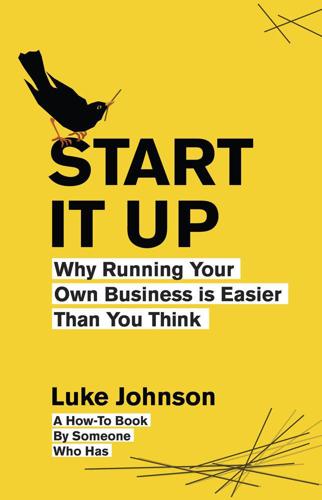
Start It Up: Why Running Your Own Business Is Easier Than You Think
by
Luke Johnson
Published 31 Aug 2011
I believe in freedom for enterprise, but I also think entrepreneurs must be allowed to reap the just rewards for their efforts. Moreover, it is clear that some abuse the patent system to prevent progress. Too many patents are now issued, many of dubious merit – especially in the field of software patents. Patent trolls abound – those who file ‘paper patents’ or ‘submarine patents’ that they never intend to exploit, but merely use as tools to sue unwitting infringers. Both Research in Motion, maker of the BlackBerry, and even Microsoft have suffered from this harmful toll on endeavour. Inventors I have met are fundamentally motivated by a desire to see their creations become appreciated and recognized, rather than an urge to accumulate wealth.
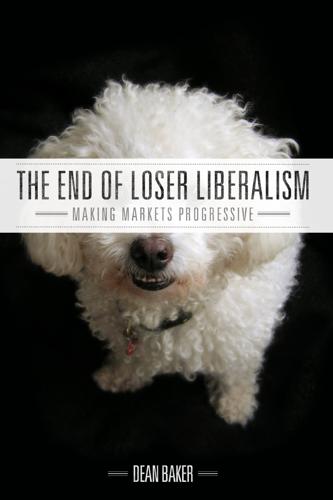
The End of Loser Liberalism: Making Markets Progressive
by
Dean Baker
Published 1 Jan 2011
[98] This figure is derived from the industry’s claim that the value that it assigns to “pirated” software was $59 billion in 2010 and that this was equal to 42 percent of total software shipments; see Business Software Alliance (2011). [99] Milliot (2010). [100] Newzoo (2011). [101] There is a whole industry of “patent trolls,” individuals or firms that buy up patents with the hope of finding a major innovation that is arguably derivative of the patent in question. The profit comes from filing a patent infringement suit. The troll just needs to be able to make a plausible case so that it can threaten the company with the possibility of an expensive legal suit and/or an injunction denying the company the use of the technology.
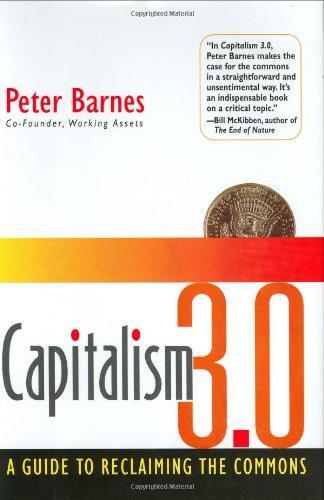
Capitalism 3.0: A Guide to Reclaiming the Commons
by
Peter Barnes
Published 29 Sep 2006
Patent Office has gone along with this, issuing patents for everything from one-click shopping on the Internet to genes that are 99 percent nature-made. Often, companies get patents not with the intention of developing them, but rather with the intention of suing someone else who might (a practice known as patent trolling). Figure 8.1 shows the dramatic rise in number of patents issued over the past few decades. Consumers and taxpayers are burdened as well. Thanks to patents, pharmaceutical companies can charge monopoly prices for up to twenty years after introducing a new drug. This is said to benefit society by providing incentives for research, but according to the Center for Economic Policy Research, the benefit is greatly exceeded by the cost.
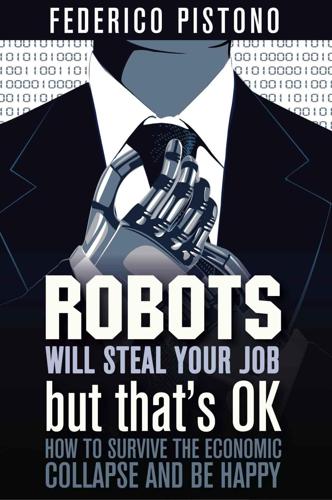
Robots Will Steal Your Job, But That's OK: How to Survive the Economic Collapse and Be Happy
by
Pistono, Federico
Published 14 Oct 2012
I would like to work on cases of child abuse, workers rights, class actions against big industries polluting the environment and killing thousands – things that could help alleviate the pains and suffers of many people. But working on these cases does not pay nearly as much, so I turn to working for multinational corporations. I become a patent troll, harassing small companies that try to democratise access to cheap medicines. Cases like this one are not the exception, they are the norm. The idea that if you work hard and do your best, you will eventually succeed, is a somewhat compelling and romantic notion of the work ethic. Unfortunately, in most cases, it is no more than an illusion.
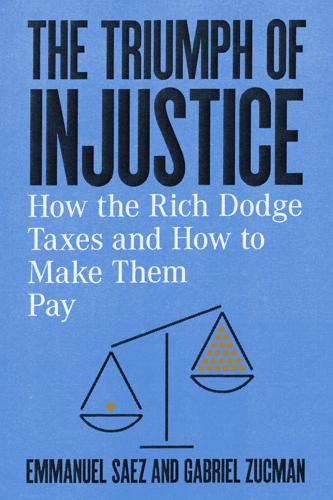
The Triumph of Injustice: How the Rich Dodge Taxes and How to Make Them Pay
by
Emmanuel Saez
and
Gabriel Zucman
Published 14 Oct 2019
It doesn’t sound very plausible, but as a matter of logic it’s not impossible that at least some of them are motivated by the lure of immense profits and work harder when taxes are low. Whatever their sensitivity to after-tax returns, however, it’s clear they are not the people most responsive to monetary gains. The sellers of zero-sum financial products, the creators of deadly pills, the promoters of tax dodges and the lawyers who certify them, the price gougers, the patent trolls, the makers of fake university diplomas: they will rise to the occasion and supply more of their labor when taxes fall. These solely profit-driven individuals will innovate more boldly—faster and faster, making it harder and harder for regulators to catch up, or for people to learn about their fraud before falling for a new one.
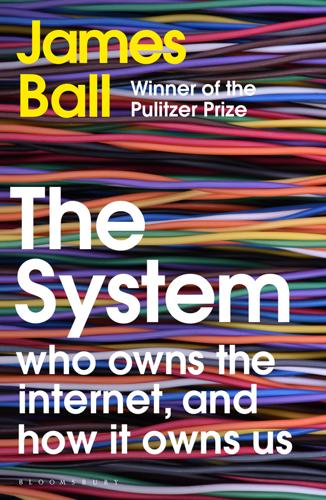
The System: Who Owns the Internet, and How It Owns Us
by
James Ball
Published 19 Aug 2020
Of course, we’re supporting the biggest of those cases in Trump’s Twitter case [in which the courts found the president was not able to block US citizens on the network while in office] that our friends the Knight Foundation13 are doing. We have a bunch of patentee cases where we’re supporting people who are fighting back against patent trolls. There’s a lot of litigation.’ Given Cohn came to the EFF’s executive directorship via a role as its general counsel and legal director, it’s unsurprising litigation takes up so much of her time – but it’s not all the EFF does in trying to fight for its vision of the internet. As well as some conventional activism, the EFF builds its own technology to try to help activist users take privacy issues into their own hands.
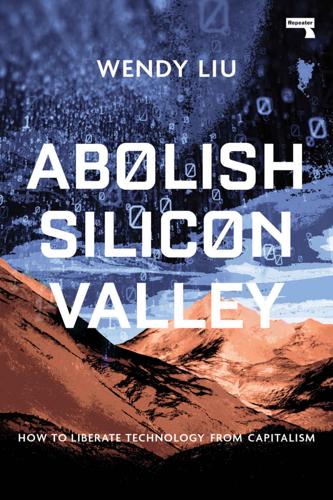
Abolish Silicon Valley: How to Liberate Technology From Capitalism
by
Wendy Liu
Published 22 Mar 2020
Reversing this requires undoing intellectual property laws that favour corporations: reducing copyright and patent term lengths, tightening the scope of what can be considered patentable, allowing more fair use for non-profit purposes. Patents should be granted to private enterprises rarely — only when there is no suitable public or non-profit entity that could use the patent instead — and should not be privately tradeable for the purpose of patent trolling. Trade secrets are another form of intellectual property, and these should be reduced in prevalence where relevant to the public interest. Consider the case of self-driving car technology, the subject of a recent trade secret dispute between Google and Uber. Google might argue that its self-driving car technology is their private property, and so for a former employee to share that technology with a competitor would be theft.10 And yet, if the technology is truly as useful to society as Google claims, then it would better serve the public interest if that technology were owned and developed by an institution accountable to the public.
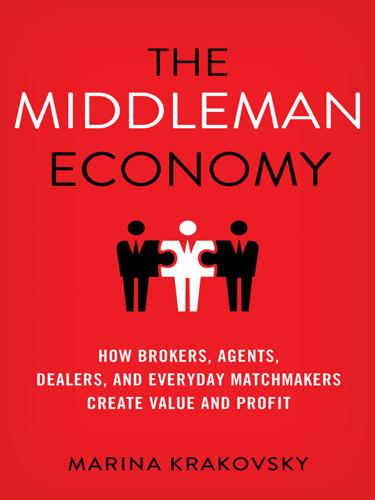
The Middleman Economy: How Brokers, Agents, Dealers, and Everyday Matchmakers Create Value and Profit
by
Marina Krakovsky
Published 14 Sep 2015
The Fair Trade movement has tried to protect smallholder farmers in the developing world from precisely such middlemen,36 who in Latin American countries are known by the wolfish moniker “coyotes.”37 Middlemen can prey on unsuspecting buyers, too, as when some retailers in the Fair Trade supply chain take advantage of the naiveté of Western consumers by charging markups for the fair trade label that are far higher than what growers receive.38 In general, anyone who preys on the vulnerable or ill-informed fits the bill: in banking, it’s lenders to the desperate, from mafia-style loan sharks to the predatory lenders who exploit the elderly and the disabled.39 In high tech, it’s patent aggregators, also known as patent trolls—companies that build up portfolios of patents not to ease patent licensing to firms that create products but to threaten alleged infringers with costly lawsuits.40 In academia, it’s predatory publishers, those with no scholarly credentials masquerading as distributors of legitimate journals.41 A snake in the grass is still a snake, and a wolf in sheep’s clothing is still a wolf—only more dangerous.

SuperFreakonomics
by
Steven D. Levitt
and
Stephen J. Dubner
Published 19 Oct 2009
The company also acquires patents from outside inventors, ranging from Fortune 500 companies to solo geniuses toiling in basements. IV operates much like a private-equity firm, raising investment capital and paying returns when its patents are licensed. The company currently controls more than twenty thousand patents, more than all but a few dozen companies in the world. This has led to some grumbling that IV is a “patent troll,” accumulating patents so it can extort money from other companies, via lawsuit if necessary. But there is little hard evidence for such claims. A more realistic assessment is that IV has created the first mass market for intellectual property. Its ringleader is a gregarious man named Nathan, the same Nathan we met earlier, the one who hopes to enfeeble hurricanes by seeding the ocean with skirted truck tires.

The Twittering Machine
by
Richard Seymour
Published 20 Aug 2019
Thanks in part to the spread of smartphone ownership, Twitter gained a hundred million active monthly users for the first time, whereas Facebook was close to gaining a billion monthly users. Since then, trolls have been blamed for everything from hate crime to sharing leaked nude images on the internet, the term metastasizing so that there can now be everything from ‘gendertrolls’ to ‘patent trolls’. Politicians often use the term to deride their social media critics, which at its most cynical works to deprive the criticism of its political substance. Previously, the role of internet folk devil was occupied by spammers, stereotypically represented as a Nigerian man trying to con a little old lady out of her savings, despite the fact that most spamming came out of the United States.
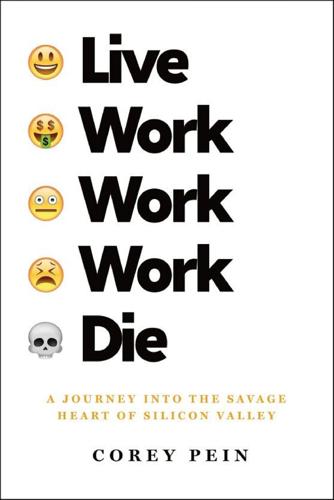
Live Work Work Work Die: A Journey Into the Savage Heart of Silicon Valley
by
Corey Pein
Published 23 Apr 2018
You have to embrace the idea of being a leader, then get followers to support you. You can’t put a price on advice like that. The other investor/judge at the San Jose pitch event was to be Istvan Joyner, a computer science PhD and former Google middle manager turned VC. Joyner worked for a low-profile $100 million investment fund owned by an alleged “patent troll,” InterDigital, Inc., although the company disputes this characterization. This litigious outfit made hundreds of millions of dollars a year by acquiring patents—more than twenty thousand in all, “including the fundamental technologies that enable wireless communications”—then licensing the right to use those technologies to companies such as Apple and Samsung.
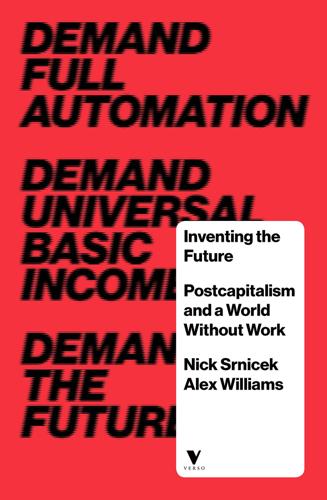
Inventing the Future: Postcapitalism and a World Without Work
by
Nick Srnicek
and
Alex Williams
Published 1 Oct 2015
Projects of this scale and ambition are in fact hindered by market-based constraints, since a sober analysis of their viability in capitalist terms reveals them to be profoundly underwhelming.15 In addition, some social benefits (those offered by an Ebola vaccine, for example) are left unexplored because they have little profit potential, while in some areas (such as solar power and electric cars) capitalists can be seen actively impeding progress, lobbying governments to end green-energy subsidies and implementing laws that obstruct further development. The entire pharmaceuticals industry provides a particularly devastating illustration of the effects of intellectual property monopolisation, while the technology industry is increasingly plagued by patent trolling. Capitalism therefore misattributes the sources of technological development, places creativity in a straitjacket of capitalist accumulation, constrains the social imagination within the parameters of cost–benefit analyses and attacks profit-destroying innovations. To unleash technological advancement, we must move beyond capitalism and liberate creativity from its current strictures.16 This would begin to liberate technologies away from their current purview of control and exploitation, and towards the quantitative and qualitative expansion of synthetic freedom.
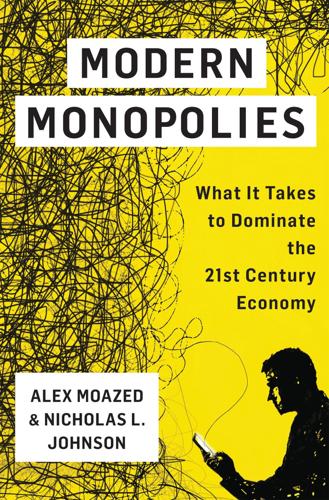
Modern Monopolies: What It Takes to Dominate the 21st Century Economy
by
Alex Moazed
and
Nicholas L. Johnson
Published 30 May 2016
It registered a loss of $249 million for the fiscal year of 2011.13 Faced with the prospect of continued decline, Motorola sold itself to Google in 2012 for $12.5 billion (though this acquisition included Motorola’s $3 billion cash reserves, meaning the book value of the deal was only $9.5 billion). Even then, Google ostensibly acquired the company just for its patent portfolio, which helped Google defend Android against patent trolls and competitors. By the end of the year, Google already had sold off Motorola’s Home division for $2.35 billion. Scarcely a year later, it sold Motorola’s handset division for $2.91 billion to Lenovo. To add insult to injury, Lenovo decided to phase out the Motorola brand name entirely by the end of 2016.
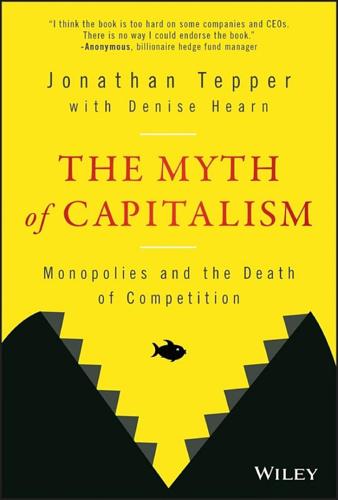
The Myth of Capitalism: Monopolies and the Death of Competition
by
Jonathan Tepper
Published 20 Nov 2018
Faster approval of generics, and the importation of generics from Canada and Europe must be allowed to promote competition. Congress should remove patent protection for areas that are rife with abuse. Almost half of all patents are for things like software and business methods that have been abused by “patent trolls” who drive up costs for producers and consumers. Shareholders Workers must be granted shares so that labor can become owners of capital. The gap between labor and capital comes in large part because the vast majority of Americans do not own any meaningful shares in companies. Until the fruits of the economy are shared with workers, the benefits of markets will only go to CEOs, managers, and the very wealthy.
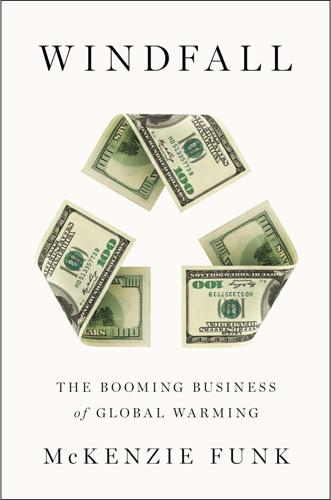
Windfall: The Booming Business of Global Warming
by
Mckenzie Funk
Published 22 Jan 2014
He was a subject of Malcolm Gladwell profiles, darling of TED talks, and author of a 2,438-page, fifty-two-pound “modernist” cookbook—a man both celebrated and feared in tech circles. The grand opening of this lab, those of us following the tour understood, was meant to be a retort to critics of his post-Microsoft business, a $5 billion investment firm called Intellectual Ventures (IV). The company was accused of being a “patent troll”: quietly buying up patents without producing anything of its own, and using the patents to extract licensing fees from those who did produce things—Verizon, Intel, Nokia, Sony—anytime it decided its intellectual property rights were violated. Its business model, critics said, was to threaten to sue.
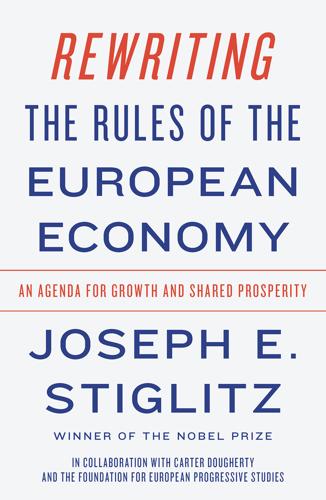
Rewriting the Rules of the European Economy: An Agenda for Growth and Shared Prosperity
by
Joseph E. Stiglitz
Published 28 Jan 2020
In the field of technology, innovators often have to wade through what has come to be called a patent thicket. A patent thicket emerges when large corporations have the resources to acquire a large number of patents, not to use them for research or to make new products, but simply to prevent other firms from entering the market and competing. Worse are patent trolls who acquire intellectual property rights solely for the purpose of making money by suing infringers. Today’s intellectual property regimes in Europe are not well designed. Their poor structure reflects corporate interests more than broader public interests. In a twenty-first-century economy, the market for innovation, or more particularly, for the knowledge behind intellectual property, is one of the most important markets.
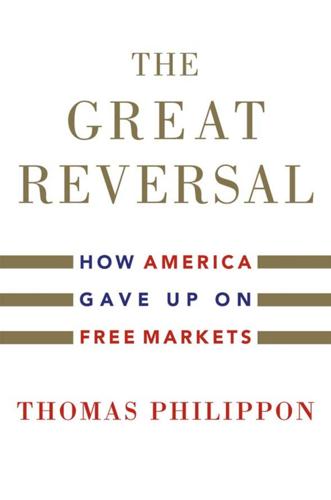
The Great Reversal: How America Gave Up on Free Markets
by
Thomas Philippon
Published 29 Oct 2019
Few industries show signs of returns to scale significantly above one. There is also no reason to think that intangible assets are more likely to create positive externalities than tangible ones. Patents are a prime example of intangible assets. Many patents today, and most of the litigation surrounding them, come from patent trolls. They abuse the system and create negative externalities. Another example is market research and advertising, or marketing more generally. These have become more important in the digital economy, yet they contain a higher fraction of zero-sum activities than other types of research and development because the gains of one firm are directly related to the losses of another.

Human Frontiers: The Future of Big Ideas in an Age of Small Thinking
by
Michael Bhaskar
Published 2 Nov 2021
Patent offices cannot compete with either the salaries or the expertise of large firms, particularly in complex and fast-moving sectors. Even as they were pressured to make money, patent examiners were overwhelmed by a flood of applications. The result? There was an explosion in the number of patents granted, tripling annually between 1983 and 2002.40 Patent trolling and squatting were normalised. Companies engaged in internecine patent arms races. Small companies, particularly in areas like software or biotech, couldn't compete and were locked out of the market.41 Patents became offensive weapons, hoarded as stockpiles to attack competitors and extract rents.
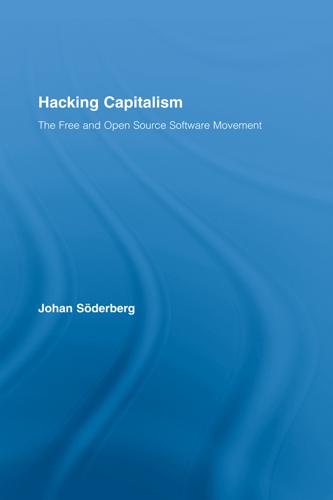
Hacking Capitalism
by
Söderberg, Johan; Söderberg, Johan;
A direct parallel to computer giants backing the Open Source Initiative is the sudden change of heart among biotech corporations towards private ownership of genetic discoveries. Pfizer, Merck & Co and other pharmaceutical and chemical industries were the chief architects behind extending patentability to life-forms in the US. Later they were alarmed when small start-ups and universities rushed to file patents on genetic information and act as patent trolls against the corporations. In 1992, the Pharmaceutical Manufacturers Association advised against government ownership of gene sequences, and the Industrial Biotechnology Association insisted that the U.S. government put gene sequences in the public domain.54 When the Human Genome project was launched it came up against an off-shoot of rampant greed.

Billionaire, Nerd, Savior, King: Bill Gates and His Quest to Shape Our World
by
Anupreeta Das
Published 12 Aug 2024
Gates also directs some personal gifts through the outfit. A gift of $2 million that he made to the Massachusetts Institute of Technology’s Media Lab came from bgC3, the predecessor to Gates Ventures. The gift became known during investigations into Epstein’s death. Gates is also an investor in patent licensing firms, sometimes called “patent trolls.” His deeply held belief that intellectual property must be protected and paid for—the same belief that led him to charge for software and license Microsoft Windows to hardware makers, and the same belief that made him an arch defender of vaccine patents during the coronavirus pandemic—led him to back Pendrell, a company that typically buys intellectual property and collects royalties by licensing that patented knowledge.
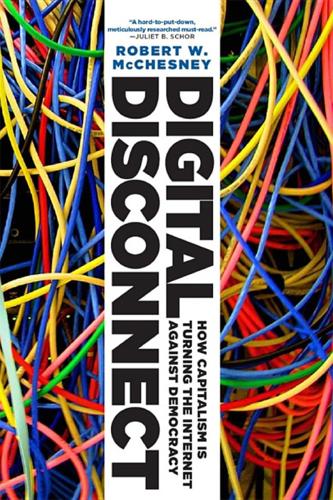
Digital Disconnect: How Capitalism Is Turning the Internet Against Democracy
by
Robert W. McChesney
Published 5 Mar 2013
Jodie Griffin of Public Knowledge argues that the government-approved deal carving up the ISP market by the phone and cable giants discussed in chapter 4 will make it possible for them to pool patents and have a “monopoly over foundational technologies for the next generation of internet access services.” See Jodie Griffin, “Verizon, Comcast, and the Patent Wars,” Public Knowledge, July 27, 2012, publicknowledge.org/blog/verizon-comcast-and-patent-wars. 27. Porter, “Tech Suits Endanger Innovation.” As Porter points out, there is now an entire industry of “patent trolls,” whose only business is to buy patents and sue for royalties. See also Vance, “Hiring a Mercenary.” 28. Tim Wu, The Master Switch: The Rise and Fall of Information Empires (New York: Knopf, 2010), 290–91. 29. Peter Decherney, Hollywood’s Copyright Wars: From Edison to the Internet (New York: Columbia University Press, 2012), 215. 30.
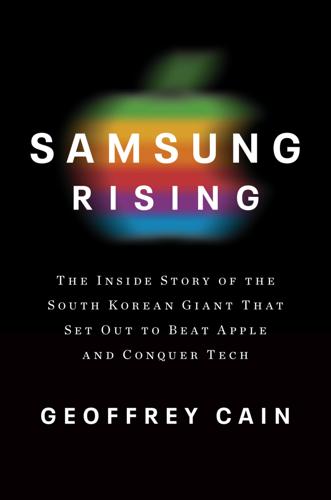
Samsung Rising: The Inside Story of the South Korean Giant That Set Out to Beat Apple and Conquer Tech
by
Geoffrey Cain
Published 15 Mar 2020
Apple had taken advantage of this pitfall, arguing it owned what were in fact generic software features, and the black rectangle shape of a smartphone, in order to shut out competition. “Isn’t it simply unworthy of such a great company,” asked the popular patent blogger Florian Mueller, “to engage in behavior that increasingly resembles the conduct of patent trolls who seek to extract undue leverage from weak and dubious patents?” Yet that success came in the wake of a significant marketing pullback. Todd Pendleton’s successors at Samsung struggled to line up anything nearly as creative or effective as their previous campaigns. Casey Neistat, on his popular YouTube vlog after the Oscars in 2016, revealed that Samsung was “gonna have me skateboard down the aisle, past Leonardo [DiCaprio], taper down the aisle and jump on the stage holding their new 360 camera in my hand during the broadcast.”
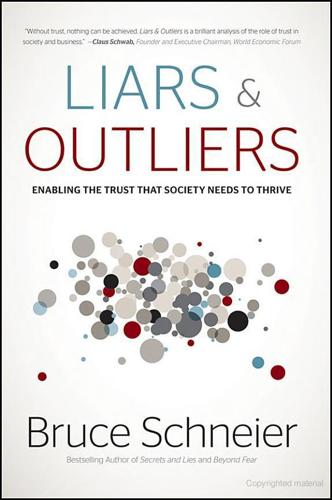
Liars and Outliers: How Security Holds Society Together
by
Bruce Schneier
Published 14 Feb 2012
Also at the UN, Security Council Resolution 1441—used to justify invading Iraq—seems to have been designed to be ambiguous enough to both support and oppose the use of force. More generally, loopholes are ways institutional pressure is subverted by defectors to do things it wasn't originally intended to do. Think of patent law, originally intended to protect inventors but now used by corporations to attack other corporations, or by patent trolls to extort money out of corporations. Or the legal profession, originally intended to serve justice but now used as an offensive weapon. Or stocks, originally intended to provide capital for companies but now used for all sorts of unintended purposes: weird derivatives, indexes, short-term trading, and so on.
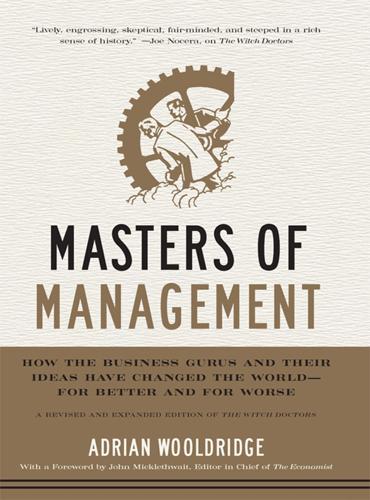
Masters of Management: How the Business Gurus and Their Ideas Have Changed the World—for Better and for Worse
by
Adrian Wooldridge
Published 29 Nov 2011
But two things are beginning to erode its lead—one negative and one positive. The negative is that the United States is currently facing a striking number of threats to its remarkable entrepreneurial ecology. The legal system can be burdensome or even destructive. One of the biggest new problems comes from “patent trolls”—trial lawyers who bring cases against companies for violating this or that trumped-up patent. The tax system is so complicated that many companies devote time and ingenuity to filling out tax forms that would be better spent on business. And, thanks to a combination of the “war on terrorism” and rising xenophobia, the American immigration system has turned into a nightmare: rather than trying to attract the world’s best and brightest, the United States forces them to run an obstacle course.
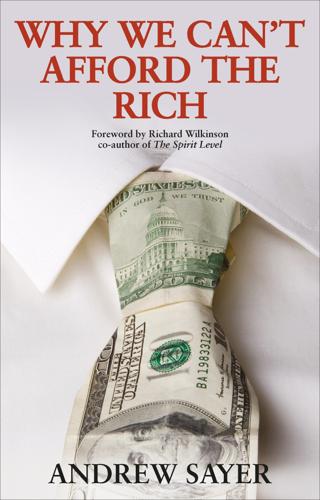
Why We Can't Afford the Rich
by
Andrew Sayer
Published 6 Nov 2014
, Discover Society, 3, www.discoversociety.org/2013/12/03/growth-in-whose-interests/. 27 Ferguson, K. Everything is a remix. Video, http://www.youtube.com/watch?v=NAKa0AJHhL4. The implications of our debt to existing knowledge are elaborated further in Part Two. 28 Public Patent Foundation (2011) ‘Organic seed v Monsanto’, http://www.pubpat.org/monsanto-seed-patents.htm. 29 ‘Patent trolls’ are even worse – they patent things invented by others but not yet patented and then threaten small and medium-sized businesses with costly law suits (Bob Jessop, personal communication). 30 Bamfield, L. and Horton, T. (2009) ‘Understanding attitudes to tackling economic inequality’, Joseph Rowntree Foundation, http://www.jrf.org.uk/sites/files/jrf/attitudes-tackling-economic-inequality-full.pdf. 31 BBC News (2012) ‘Premier league clubs climb to new highs’, 31 May, http://www.bbc.co.uk/news/business-18248540. 32 Rosen, S. (1981) ‘The economics of superstars’, American Economic Review, 71(5), pp 845–58.

Project Hail Mary
by
Andy Weir
Published 15 May 2021
“And to streamline situations like this, I also have a preemptive pardon from the president of the United States for any and all crimes I am accused of within U.S. jurisdictions.” The bailiff took the papers and handed them to the justice. “This…” said the justice, “this is exactly what you say it is.” “I’m only here as a courtesy,” said Stratt. “I didn’t have to come at all. But since the software industry, patent trolls, and everyone else related to intellectual property banded together in one lawsuit, I figured it would be fastest to nip this in the bud all at once.” She grabbed her satchel and put the tablet inside. “I’ll be on my way.” “Hold on, Ms. Stratt,” said Justice Spencer. “This is still a court of law, and you will remain for the duration of these proceedings!”
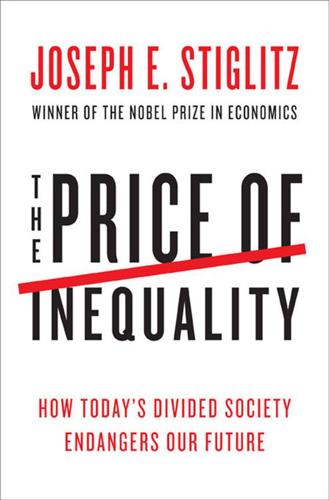
The Price of Inequality: How Today's Divided Society Endangers Our Future
by
Joseph E. Stiglitz
Published 10 Jun 2012
We talk about the importance of intellectual property, but we have designed an expensive and unfair intellectual property regime that works more to the advantage of patent lawyers and large corporations than to the advancement of science and small innovators.40 Large firms can trespass on the intellectual property rights of smaller ones almost with impunity, knowing that in the ensuing legal fight they can outgun them. Rogue patent trolls (law firms) can buy sleeping patents (patents that have not yet been used to bring products to the market) at a low price, and then when a firm is successful in the same field, claim trespass, and threaten to shut it down as a form of extortion. That’s what happened to Research in Motion, the producer of the popular BlackBerry, which became the target of a patent suit from “patent-holding company” NTP, Inc.

This Changes Everything: Capitalism vs. The Climate
by
Naomi Klein
Published 15 Sep 2014
The Pinatubo Option has become a media favorite thanks in large part to the work of Nathan Myhrvold, the excitable former Microsoft chief technology officer who now runs Intellectual Ventures, a company that specializes in eclectic high-tech inventions and is often described as a vehicle for patent trolling.12 Myhrvold is a made-for-TV character—a child prodigy turned physicist turned tech star, as well as an avid dinosaur hunter and wildlife photographer. Not to mention a formally trained amateur cook who spent millions researching and co-writing a six-volume bible on molecular gastronomy. In 2009, Myhrvold and his team unveiled details for a contraption they called the “StratoShield,” which would use helium balloons to suspend a sulfur dioxide–spraying tube thirty kilometers into the sky.